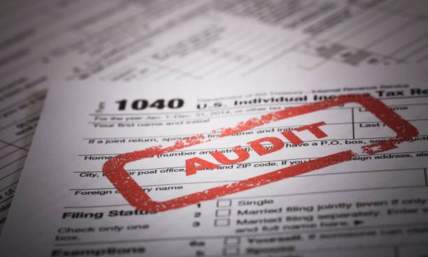A Resource to Independent Contractor Pay Stub
As a self-employed or a 1099 contractor, understanding your personal payroll is highly essential. This is important, especially when dealing with tracking and monitoring your finances. 1099 for contractor prepares one for good management of tax and financial discipline. This is then inevitably used by employers to show even more transparency.
While you get the freedom to work alone, it comes with the big responsibility of managing all your income, earnings, and expenses. To make it easier, you need a pay stub to simplify the process and make the work easier. This is a guideline that assists one in realizing the potential of pay stubs. Searching for efficient contractor payment solutions? Let’s dive in!
What Is 1099 for Contractor Form?
The 1099 for contractor form is completed by the employer. It indicates the amount which the employer paid to the independent contractor. It should not be declared as income earned while being an employee. That is in contrast to employees who have their taxes taken out for them right from their paycheck. Independent contractors are responsible for paying their own taxes. This includes self-employment taxes.
Understanding 1099 Contractors and Their Pay
A 1099 contractor is an independent worker who basically does freelance jobs or gigs and is not formally employed. These people only perform certain roles or complete a particular task in order to get paid immediately. Since these independent contractors do not work formally, they typically do not enjoy the benefits that formal staff or employees enjoy.
Now, if you’re wondering if a 1099 worker receives their independent contractor pay stub, they don’t. These contractors create their own pay stubs for every client they work with every time they get paid. A pay stub is a salary or earning statement that summarizes an employee’s total earnings within a specific pay period (whether monthly or yearly). It generally contains details of that employee’s payment, tax details, compensations, and other deductions.
Independent contractor pay stubs, however, are not so different from normal pay stubs. They are generated or created to make every record of any payment easier, especially since they get paid by multiple clients. The pay stubs contain in-depth information like the wages earned per client, the number of hours worked, and all deductions. It also includes a Social Security Number (SSN), a category for every client worked with, and all tax withholdings.
The pay stub is then needed when the 1099 contractors have to submit their income to the Internal Revenue Service (IRS). They also need it when filling out their 1099-NEC tax form after the year is over, amongst other reasons. This form is a type of 1099 for contractor form that is issued to independent contractors. It reports their income to the IRS and is usually issued by businesses, organizations, or financial institutions that hire independent workers. The 1099 for contractor form usually contains interests, dividends, or payment from each work done and is of different types. Each of the types is, however, based on specific types of income, and the 1099-NEC form is commonly used.
Do Independent Contractors Need Pay Stubs?
In most states, independent contractors are not required to submit pay stubs. However, providing them guarantees transparency, such as tracking the actual income. Workers utilize pay stubs in tax declarations, credit requests, or proof of income by contractors. Pay stubs are also helpful for these contractors, particularly in cases of non-payment or short-payment claims. Using makerspace management software can streamline administrative tasks, including generating pay stubs for independent contractors to ensure transparency and trust.They may help them develop trust with employers so that they can work together.
Benefits for Contractors
Pay stubs also enable a 1099 for contractors to monitor the earnings received. This helps to make the right financial decisions. In filing seasons, they help make the process quicker and easier. Contractors also prefer using pay stubs, especially when applying for loans or mortgages.
Benefits for Employers
Issuing pay stubs enhances the level of transparency. The establishment of paid records helps to reduce confusion and conflict between a business and contractors. They also assist in compliance during an audit or tax review.
Essential Components of an Independent Contractor Pay Stub
As mentioned earlier, an independent contractor pay stub contains certain details that explain your earnings. Understanding some of the components of a pay stub helps you in many ways. Some of the elements include:
-
Personal Information: This is the independent contractor’s identification. It includes your name, address, SSN, pay date, and period. It identifies the owner of the particular pay stub. Your personal information should be contained in everything related to your finances.
-
Client Information: This contains details of who you’ve worked for or clients/organizations you’re currently working for as a 1099 contractor. It includes the names, addresses, and contact information of the clients. This is needed for record purposes, especially when you have to deal with many clients.
-
Gross Income: Gross income refers to the income before any deduction or expenses. It constitutes full payment for work done during the work period.
-
Pay rate: This is the rate you agree to work for. This can be an hourly rate, per-project rate, or other agreed-upon structure. This section details how the payment amount is arrived at.
-
Working Hours: This is the number of hours worked within the work period. Mostly, it helps you and your client understand how the gross income was arrived at.
-
Expenses: Let’s say you incur business expenses, such as travel, materials, or software. Such costs can be reimbursed by the client or can be subtracted from the gross income.
-
Current Total: This is usually calculated by multiplying the hours you have worked with your pay rate. It is the total amount you get paid.
-
Deductions: Because independent or 1099 contractors pay their own taxes, this section helps estimate what needs to be set aside. Examples of deductions might include federal, state, and self-employment taxes, such as Social Security and Medicare.
-
Net Pay: This is the final amount that you take home as an independent contractor after you have been deducted for taxes and other expenses.
5 Steps to Generate an Independent Contractor Pay Stub
Here are the simple steps to follow to generate an Independent contractor pay stub:
-
Obtain All the Required Payment Details
Get all the 1099 for contractor details as well as their record of payment. You need to have correct tax ID numbers, names and addresses used. This is to help in the filing process.
-
Use a Pay Stub Generator or Software
There are platforms that can help you simplify this process. They provide easy-to-use templates for preparing the best pay stubs. While choosing this template, pick one with the appropriate space for contact information, tasks & wages, and your payments & deductions.
-
Add Payment Details and Other Information Needed
After picking your desired template, enter all the required information where necessary. You’re to enter your personal information, client information (and address), and earning information (including gross and net income, rates, and fees).
List gross pay, total hours or shifts worked, and any deserved bonuses. Subtract agreed fees or taxes to arrive at the net income.
-
Review and Verify Details
Review all calculations and components to make sure data inputs are accurate. Errors amplify the possibility of disagreements or penalties during tax audits.
-
Save the Pay Stub
For record-keeping and compliance purposes, retain a copy. This will definitely come in handy.
To Sum It Up
Employers and 1099 contractors benefit from pay stubs. They improve efficiency, facilitate paying taxes, and minimize over-border transactions. A pay stub is a relevant document. Records are kept using pay stubs. And in this way, they protect themselves from legal issues and all sorts of complications.
Our site has the perfect independent contractor pay stub generator, a user-friendly tool to help manage your payroll. It includes all basic elements covering your earnings, automatically calculates them, and gives you the most accurate pay slip. Talking about the professional templates, one can create stubs in minutes. Why not increase the efficiency of your payment procedures? Create your pay stub today!















